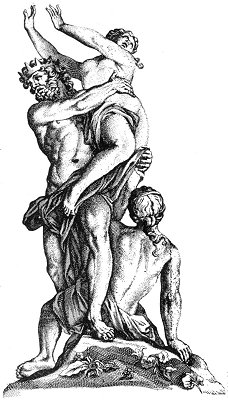The Rape Of Persephone
Persephone
The soul of man--often called Psyche, and in the Eleusinian Mysteries symbolized by Persephone--is essentially a spiritual thing. Its true home is in the higher worlds, where, free from the bondage of material form and material concepts, it is said to be truly alive and self-expressive. The human, or physical, nature of man, according to this doctrine, is a tomb, a quagmire, a false and impermanent thing, the source of all sorrow and suffering. Plato describes the body as the sepulcher of the soul; and by this he means not only the human form but also the human nature.
The Rape Of Persephone
The legend used in the Lesser rites (of Eleusinian) is that of the abduction of the goddess Persephone, the daughter of Ceres, by Pluto, the lord of the underworld, or Hades. While Persephone is picking flowers in a beautiful meadow, the earth suddenly opens and the gloomy lord of death, riding in a magnificent chariot, emerges from its somber depths and, grasping her in his arms, carries the screaming and struggling goddess to his subterranean palace, where he forces her to become his queen.
So what that really mean
Pluto, the lord of the underworld, represents the body intelligence of man; and the rape of Persephone is symbolic of the divine nature assaulted and defiled by the animal soul and dragged downward into the somber darkness of Hades, which is here used as a synonym for the material, or objective, sphere of consciousness.
THE SECRET TEACHINGS OF ALL AGES: The Ancient Mysteries and Secret Societies Part Three by Manly P. Hall
